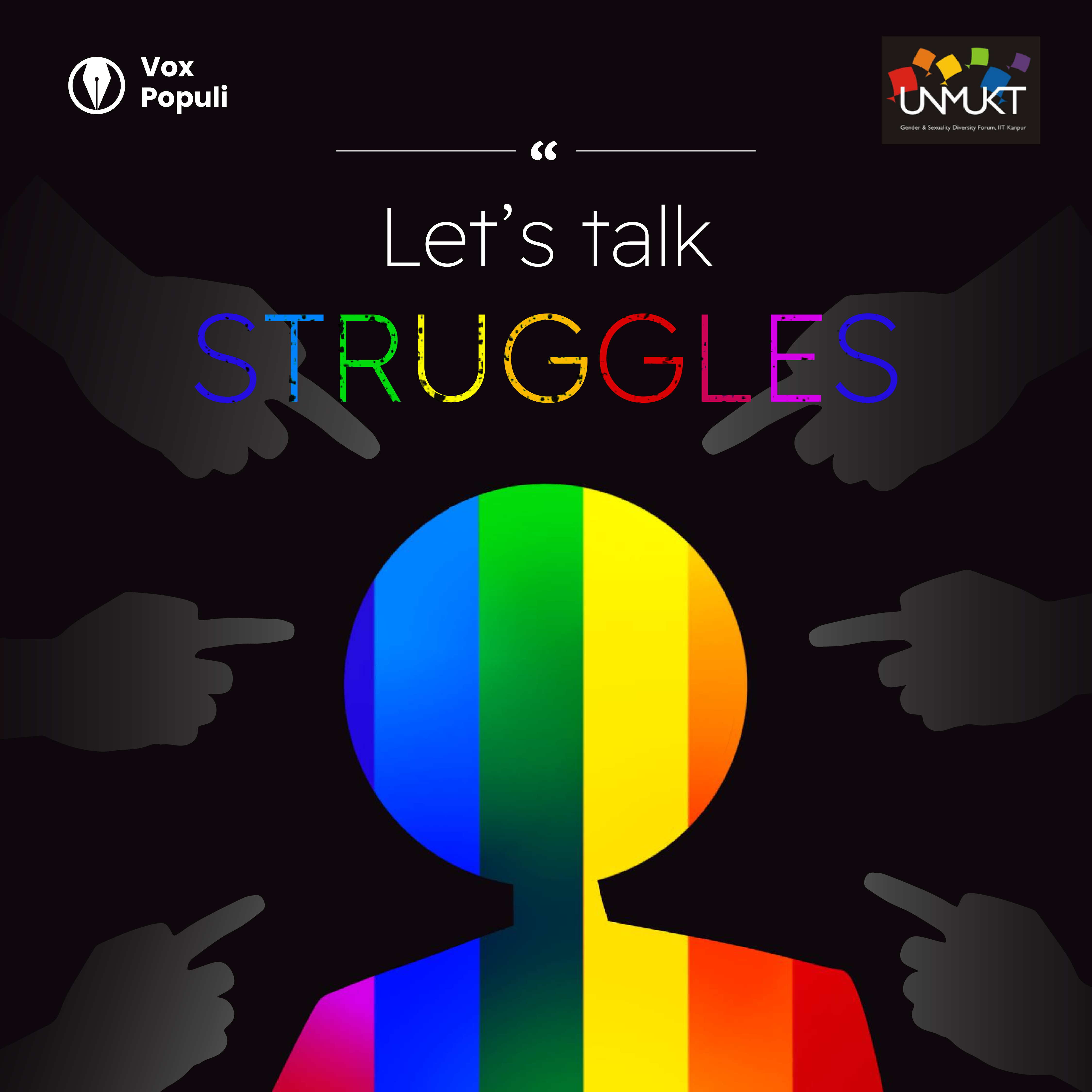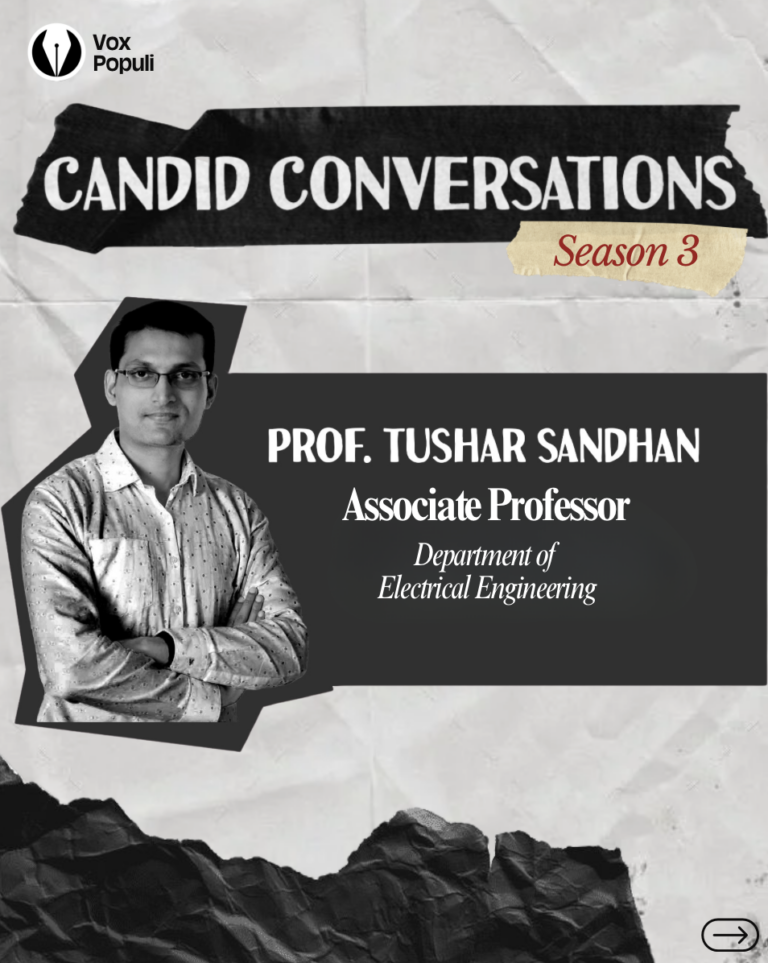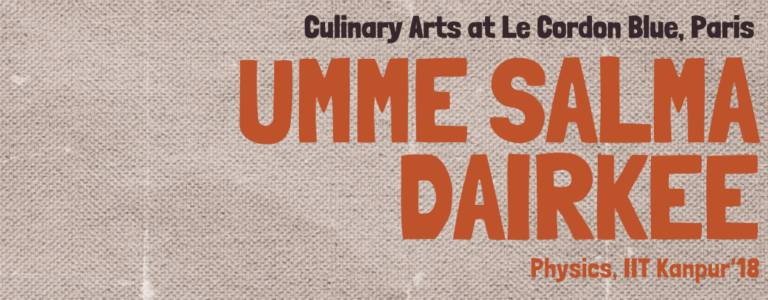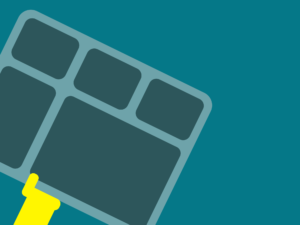The identity of the interviewee has been kept confidential by Vox Populi in order to safeguard their privacy.
I will start my story from the time I was in school. My school life was rather ordinary, but the bullying I went through changed me as a person. Its severity varied, from being called slurs like ‘meetha’ to being cornered by other students who would pass comments on the way I walked, talked, and essentially carried myself. All of it was traumatising for me. I did not have enough self-respect or pride to retaliate at that time, and I would go through all of it silently and try to correct the ’flaws’ that were pointed out to me by my peers. I would have been okay if this was limited to my school and coaching, but when people would come outside my house to yell slurs at me, the entire thing became much more terrifying because I did not have any place where I could go to escape from all of this. Friends would keep asking me if there were any girls that I liked or why I hadn’t dated anyone, but I would always try to avoid such conversations. In 9th grade, I thought I liked a girl, and we dated for some time. Throughout the relationship, I realised that between us, was just an aesthetic attraction and I broke up with her soon after. The realisation that things were not working out with a girl was terrifying, and I was confused about my sexuality. But seeing the way my peers reacted even to the idea of someone not being heterosexual, I thought it was best to hide this part of myself. Even at home, homosexuality was looked at with disgust, and the overall environment felt unsafe. So, when I developed a crush on my best friend while preparing for JEE, I chose not to acknowledge my feelings, which was painful for me. Because of how things during my schooling were, I am only in touch with four people from school right now.
After coming to college, I kept myself extremely busy during my first year. From Freshers to introductory sessions of any club that seemed even a tad bit interesting to Galaxy, I devoted most of my time to extra-curricular activities, and I loved it. I also volunteered at Unmukt because I was interested in educating myself about the LGBTQIA+ community. In retrospect, I might’ve been keeping myself busy to avoid thinking about crushes and relationships and my sexuality. I remember, right after orientation, almost every single boy around me was talking about girls, objectifying them, talking about sex and whatnot. I wasn’t interested in these discussions and tried my best not to participate, but when nudged with the question, “Who do you have a crush on?” To avoid any more questions, I would simply name any one of the popular girls whom many had a crush on. I remember having a crush on a senior, but I obviously could not admit to it because he was a guy. With all this chaos in my social life, I paid no heed to the clutter in my mind. The longer these feelings of confusion were left unaddressed, the more disturbed I started to become. Still, I chose to ignore these things because I was not ready to deal with the consequences of admitting to being confused. Why make my life more challenging when I can pretend that everything is fine, right? First-year was tough, both physically and mentally.
When the lockdown got imposed, I finally had to face all these feelings that I had been suppressing for years, whether while studying for JEE or simply having a very active social life. The situation at home was not very good; I was not on very good terms with my father. The only time I would interact with my parents was during meals. I had started becoming more vocal about societal issues that troubled me, leading to disagreements and arguments. Lockdown had brought a sense of isolation, wherein I was left alone with the mess of my feelings, and the only option I had now was to think and sort things out. And that is what I did. I spent most of my nights overthinking and would always try to think of the possible endings of my coming-out story. That is if I ever chose to come out. I still was not quite sure what to label myself, or if I even wanted to label myself. With the ongoing pandemic, I became hyper-aware of my loneliness. I started feeling this need for a person, my person, and I really wanted this said person to be a boy. This realisation was very disturbing for me. Having seen how society reacted to anything that did not fit its idea of a relationship, I would try to picture scenarios in which I would end up having feelings for a boy, and would always come up with two possible courses of action:
- I could suppress my feelings and go ahead and marry a girl. That would prevent me from tarnishing my reputation, but it would make both me and my future wife unhappy.
- I could choose to be with a man, at the cost of losing my family and any respect that I have in society, at the very least. This would also make me unhappy.
Whenever I would go down this train of thought, I would end up crying. After the first couple of months of lockdown, this had become a daily occurrence. Even if I tried to go out to freshen my mood, I would see couples doing their daily chores and being happy, and I would end up thinking about how I would probably never have this happiness in my life.
This entire episode was very suffocating! All I wanted to do was talk to someone, to somehow let go of this weight I had been carrying around in my heart. I wanted to scream at the top of my lungs and vent out all this sadness, but I had no one. I found my escape in movies. Specifically, queer movies. I would watch queer romcoms. Watching all these queer characters have happy endings made me feel hopeful about my own fate. It started with ‘Call Me By Your Name, which I initially thought was a romcom, but the ending broke me. As it turned out, I related more to this sad ending than I did with all the romcoms I was watching before. Thus began the tradition of watching sad queer movies every night. This phase gave me a temporary release from the suffocation that had been building up for years, but I eventually ran out of movies too, and now I was sadder, compared to the beginning of lockdown.
I was still in touch with my best friend from school, whom I could talk with about anything, and both of us respected each other’s opinions. With this phase of sadness that only seemed to get more intense, I decided that I would come out to her. I remember how that conversation started off. I texted her at midnight, and started off with the classic “listen to whatever I am going to tell you, but please don’t let it ruin our friendship.” I was very hesitant, but I went forward with it. Her response was very comforting, and she made it very clear that she has no problems with my identity. Meeting her for the first time after this was pretty awkward, but things were back to normal in no time.
I still wasn’t fine though. As a straight person she had quite idealistic views about queer issues, and she didn’t relate to them. I had to explain a lot of stuff to her, which I did not want to. This was because I myself could not accept this part of me completely and it became a reason for my poor mental health. Moreover, I had a whole storm inside my head and explaining or defending myself was mentally draining and exhausting. The last thing I wanted was to be questioned in those moments because I had already been doing that to myself for a pretty long time.
After Unmukt, I had also started connecting with queer circles inside as well as outside campus and had managed to find a social circle where people could freely discuss their issues. By nature, I had always tried my best not to trouble people with my problems, but I decided to speak up about my problems, to feel some sense of relief. And it did make me feel better.
Still, there was this unsettling feeling that all of this is an alternate reality since all this interaction was virtual. That the moment I stepped away from social media, I was back to the ‘real world’, where a boy-girl relationship was the norm, and being queer came with terrible consequences. But for now, this had to make do.
During the lockdown, I decided to give Blued app a try, which is a gay dating app. My experience with the app was dreadful, to say the least. The main purpose of going on these apps for me was to find someone who I could talk to without any hesitation, who could relate to the kind of issues I was going through, and someone who would care about me. But most people on these platforms were only looking for hook-ups, and that was not something that I had expected, and it made me feel extremely uncomfortable. To top it off, everyone wanted to be very private, almost anonymous, and the constant fear of having your identity leaked was very stressful. I had realised that it was more or less impossible for me to find something in line with my needs on dating apps. Thus I gave up on them. In retrospect, my discomfort towards these dating apps arose out of my internalised homophobia and my conditioning to feel disgusted by any sexual activity before marriage, especially when it is between men. With time, by educating myself, by the practice of learning and unlearning and interacting with people, I have defeated a major part of my internalized homophobia. I also do not see sex in a derogatory manner.
Around the same time, I was still talking to my best friend from coaching, whom I once had a crush on. His openness toward discussions, made me feel that maybe we could be together. After a long time, I felt that I should confront him about my feelings. Having a serious crush on your best friend is often upsetting because upon confessing there are usually two possibilities – you can either get into a relationship, or your friendship will be ruined. The third possibility, however unlikely, is that both of them are mature and they put in enough effort and maintain the bond, which is not easy. While I ended up confessing to him, it did not work out – thus I ended up losing his friendship. The trauma that followed still haunts me – it took away my confidence to ask someone out and rebuilding my morale took a lot of time. This experience gave me a clear realization that my love life is not going to be as easy as that of heterosexual people. The reason I was rejected was because of my body, that I am a man and for the first time in my life, I cursed my body and God. I felt alone, and nothing seemed to replace that loneliness. That loneliness was and still is suffocating. People told me that my life was set, just because I was studying at IITK – unaware of what was really going on inside my head. I had realized that the chances of having a good ending are insanely low and to live with this realization every day is draining and often made me suicidal. I have to fake it all, act like everything is okay, put on a fake smile and just….pretend.
I had also been active in terms of showing my support for the LGBTQAI+ community on social media, whether it was by posting stories, joining Facebook groups, or connecting with people and getting to know about their experiences. This made me the perfect target for a certain faction of people on campus, who enjoy hating on anything and everything they can hate on. These people expected me to defend every absurd accusation and answer every question they had regarding the movement. In an attempt to ridicule me, one of my acquaintances first asked me in a mocking tone, if the pride parade participants are ‘chhakke’. The same people started calling me out with names such as ‘chhakka’, ‘gay’, ‘meetha’ and whatnot in a derogatory tone. During the pride month, one of my wingmates asked me what it was in a mocking tone, and another wingmate replied with answers like “this is the only time when they feel proud!”, “This is the only time they have when they do lots and lots of sex.”, and “this is the time when they are allowed to feel proud and respectful”, and laughed about it. Another wingmate of mine ridiculed the LGBTQIA+ community by addressing them as “LGTV Folks”, “LGBT L*uda L*ssan People” etc. In my wing, I had identified three or four people who were the ones who passed these comments and tried to provoke me. The others were understanding when I would talk to them in person but were too hesitant to speak against those select three-four people. They did not want to cause fights in the wing, even if it meant that they were choosing to be a part of a group that was creating a toxic environment for marginalised communities on campus.
A few months back, after returning to college, I had painted my nails pink, and was really happy with the way they looked. I went and showed it to few of my wingmates, who always claimed to be allies. The moment they saw my nails, one of them grabbed my hand, crushed my fingers, and mockingly said they wished to cut them off. To them it didn’t seem to be a big deal but I was shocked and ran into my room and started removing the nail paint with sanitiser because I did not even have a nail-paint remover. Soon after, we got to witness the Valentine’s week when the privilege of the heterosexual people was at display in the form of dates, exchanged gifts, chocolates and roses – where everyone was enjoying a ‘normal life’. People often don’t understand how fortunate they are. I feel this need to clarify everything I do or don’t. I have to make sure that my actions are not too ‘feminine’ or give away this part of my identity. I constantly have to hide my phone and laptop. If I’m giving my phone to someone, I have to make sure that they see nothing that reveals everything to them, that my character does not break and that I don’t cause a problem. I try to be very strong, I try to stand for myself and my pride, but after a point, I lose it all, and valentine’s night was one such night when I broke down.
I have a lot of queer friends with whom I can rant a lot, and I can share things, but I’ve always respected people’s boundaries so I tried not to bother them much. It was suffocating no doubt, but I was glad to have them around. So there are friends with whom I generally connect. I realised that a lot of people have the same kind of stories, and they are using education and career as a solution, because when you have that stability, you have the power to deal with such rubbish and shitty things, and it acts as a backup, that if everyone leaves you, you still have materialistic support. So when I finally decide to come out to people, that would be at a point when I’m financially and socially independent.
Back at home, it was a bit triggering, but being in college is better because you’re alone, yes, but you also have the freedom, and it’s easier to be invisible here. In general, in my life, I do not like being a topic of discussion – whenever I enter a room, people expect me to have some discussion about LGBTQ issues. I am challenged to defend and speak for myself on several related topics with baseless arguments being relentlessly thrown at me. People need to understand that ‘Sexuality’ is just a small part of me, not my whole personality and I really want to enjoy and explore this part of mine, but constant questioning pulls me down and dismantles me piece by piece. I’m generally up for healthy respectful discussions but at times I feel like I can’t fix everything, not if they’re unwilling to learn. In the end, it’s not healthy for me to take the responsibility for educating others. I am not Google but google can actually do wonders.
I cannot come out to the whole world right now, because even though my wingmates are intolerant, being in the company of these people is better than being alone. Also, considering the situation in my family right now, I am not sure if they will accept this part of me, and I am not ready to lose these connections. So, I speak half-truths. When asked about marriage, I say that I don’t want to marry a girl without mentioning that I want to marry a boy. I don’t hide my tracks anymore. In the end, even though I can not come out to everyone, I feel extremely exhausted and have become numb towards what other people are perceiving of me. As of now, I have come out to a few trustworthy friends, and am actively trying to learn about LGBTQ issues and now even trying to learn more about intersectional feminism. So yes, life is not so bad right now and I am still quite optimistic for my ‘Call Me By Your Name’ moment, but one with a good ending!
Interviewed by: Avisha Gaur, Shivangi Singh, Aditya Raghav Trivedi
Transcribed and Edited by: Sanika Gumaste
Design by: Raj Varshith











